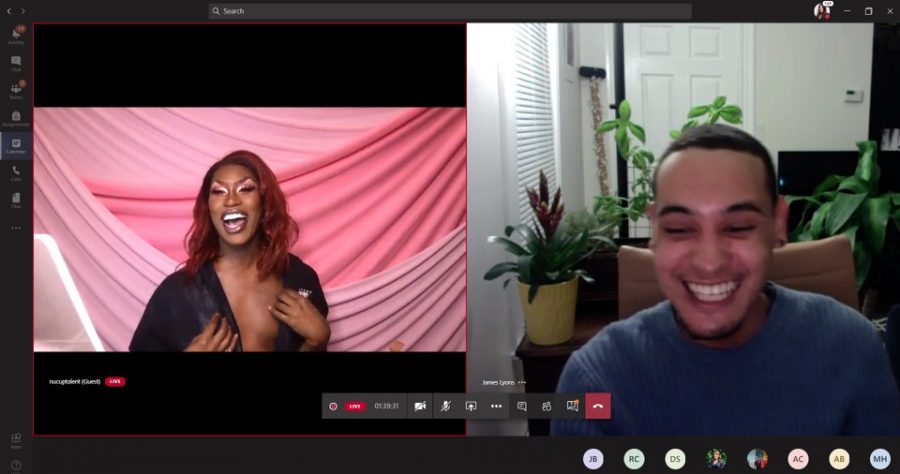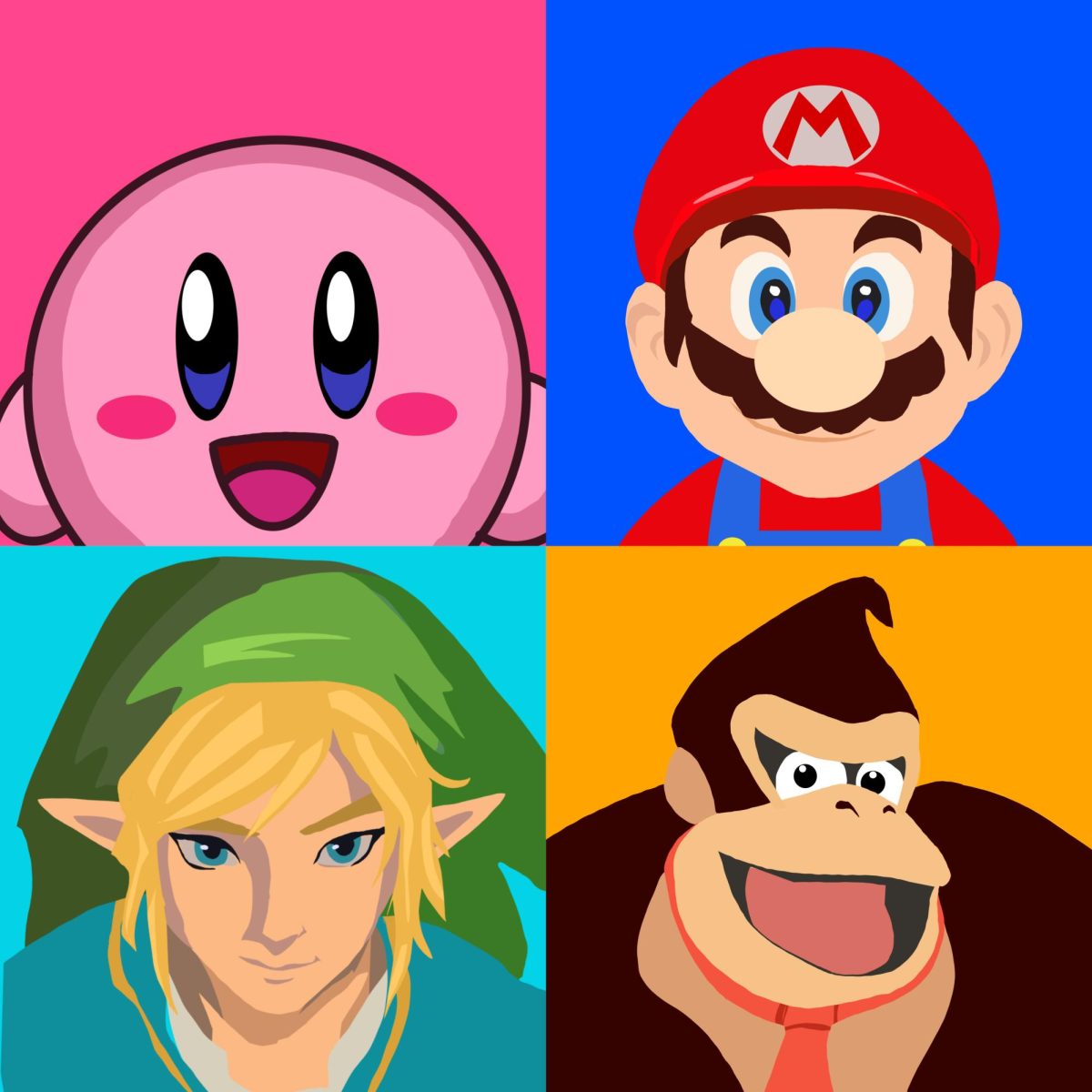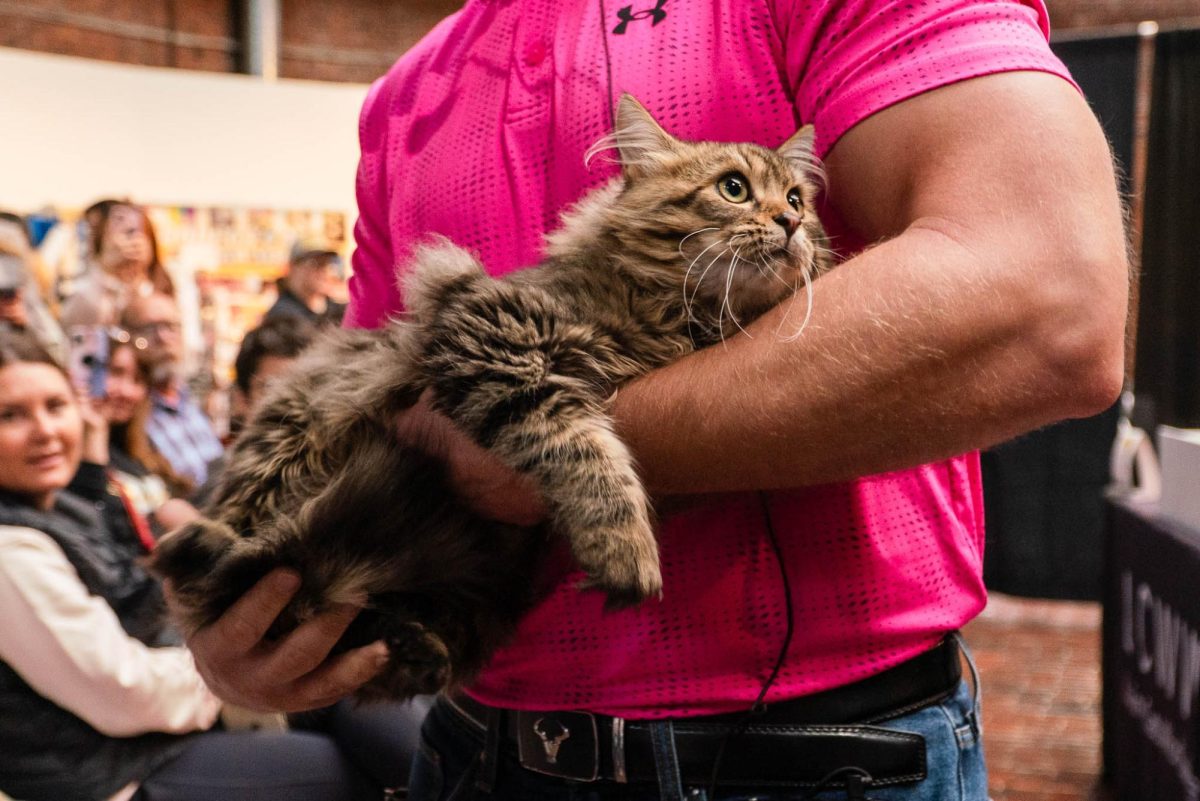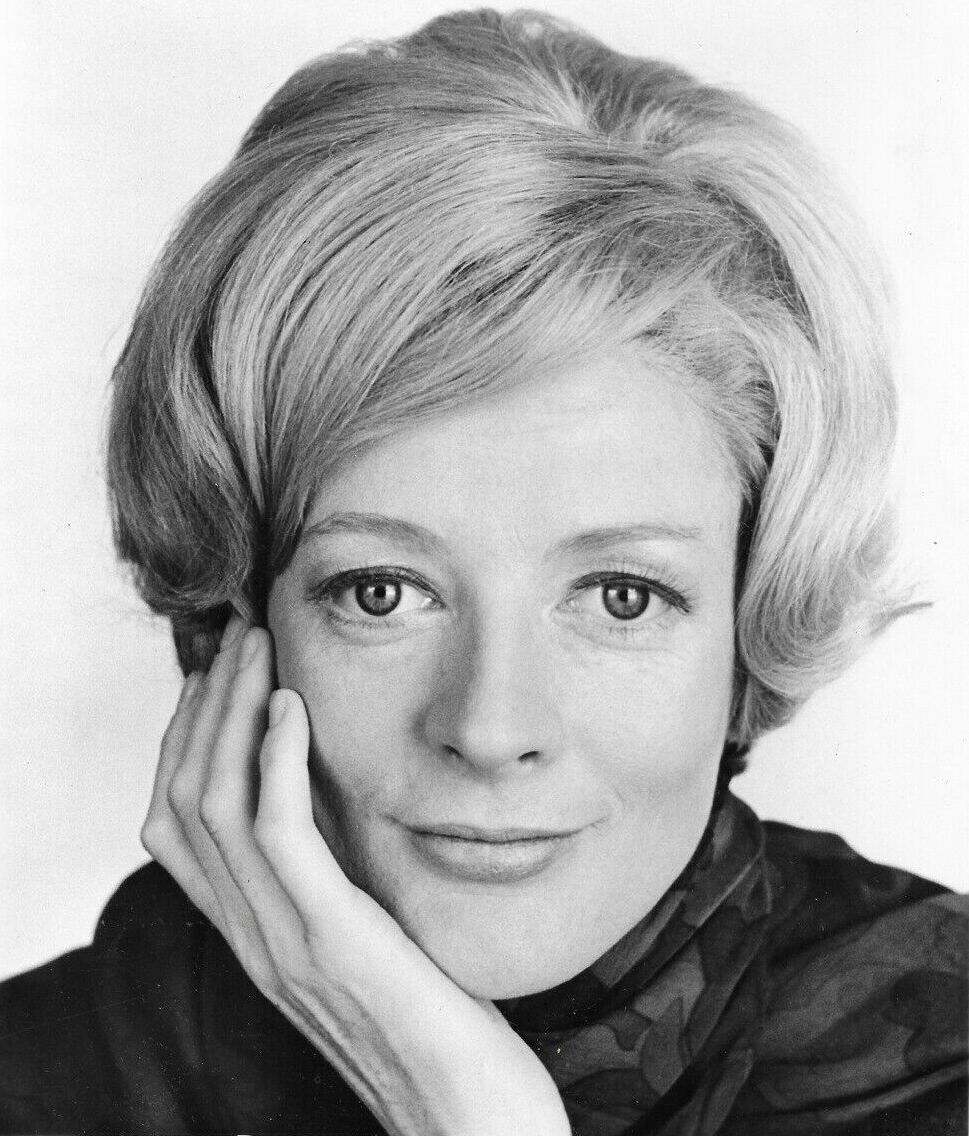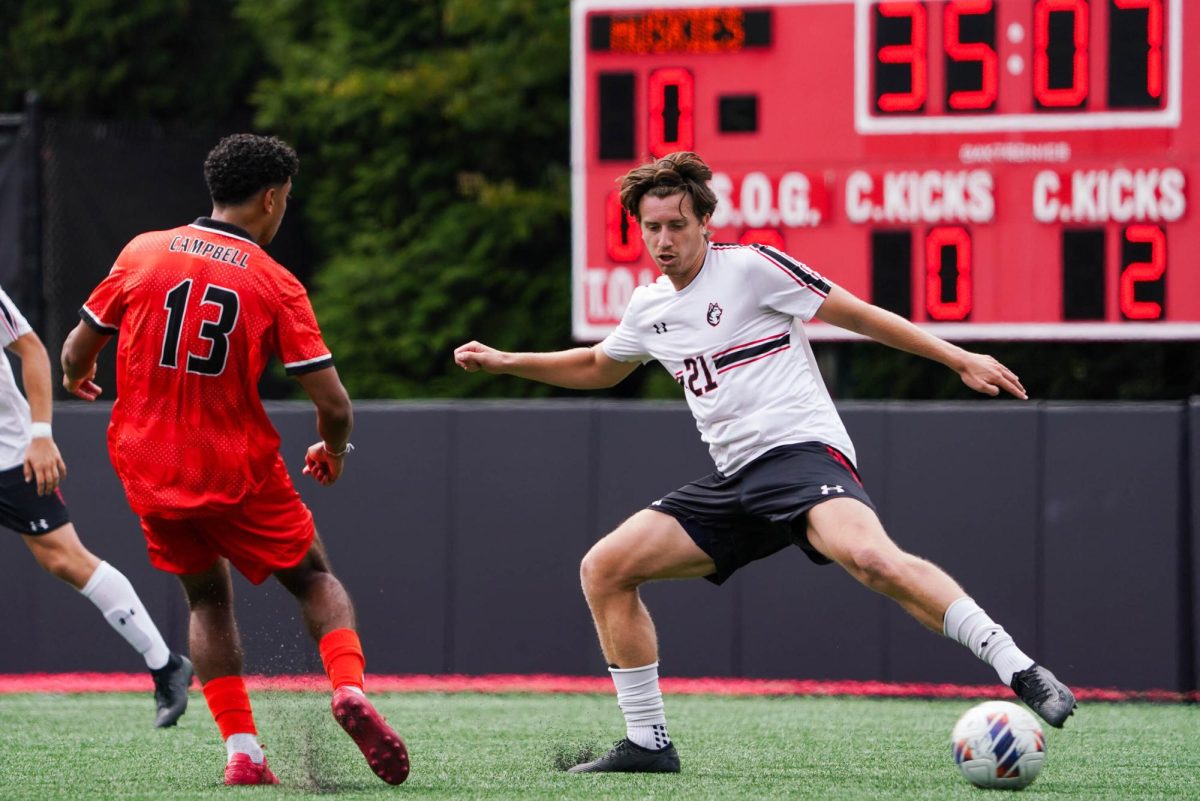AfroSpectrum brings LGBTQ+ perspective to the Coalition for Northeastern Student Organizations of Color
James Lyons in a Microsoft Teams meeting with Shea Couleé, a professional drag queen who AfroSpectrum and Northeastern CUP hosted for an event in the fall of 2020.
January 24, 2021
The Coalition for Northeastern Student Organizations of Color, or CNSOC, voted unanimously to approve a petition for membership put forth by AfroSpectrum.
AfroSpectrum is a new student-led affinity group for students who identify as Black and LGBTQ+. The CNSOC is composed of 10 other student-led organizations that are committed to amplifying the voices of students of color within their communities. Despite the coalition being founded almost entirely by LGBTQ+ students, according to members, AfroSpectrum will be the coalition’s first group dedicated to representing LGBTQ+ students.
AfroSpectrum seeks to provide a safe, healing space for Black students in the LGBTQ+ community with the resources the coalition has to offer, according to founder Shantavia Craigg, a fifth-year business administration major. Since creating AfroSpectrum in August, Craigg has found belonging and fulfillment in the community; even making the pandemic “not suck so bad.”
“COVID shut down a lot of our nightlife in Boston which has made it really hard for Black queer communities to get together,” Craigg said. “There’s never really been — in other spaces across Boston — a welcoming feeling. If it was a queer space, it’s usually an all white space.”
Craigg’s goal in creating AfroSpectrum was to build a family, so that even when there isn’t a physical space available, Black queer students still have a support system. Joining the CNSOC will also help AfroSpectrum build alliances with other student groups.
James Lyons, a fifth-year political science major, is the cultural liaison for AfroSpectrum and will serve as the CNSOC representative for AfroSpectrum. Lyons also expressed the need for a space specifically for Black LGBTQ+ students.
“It used to be that the LGBTQ+ Resource Center was a white space and the African American Institute was a straight space,” he said. “So if you’re Black and queer where do you go?”
Lyons says part of the dichotomy of being Black and identifying as LGBTQ+ is feeling like there isn’t a space for you. But now, because of conversations led by groups like AfroSpectrum, Lyons is proud to say that Black LGBTQ+ students belong in both the LGBTQ+ Resource Center and the African American Institute spaces.
AfroSpectrum is a space for students to investigate the intersection between their racial identity and their sexual identity. Intersectionality is a founding principal of AfroSpectrum, Lyons said, and is essential for Black liberation.
AfroSpectrum is an inclusive space for students who have been excluded from spaces that are perceived to be white or straight. The group is primarily for LGBTQ+ students of color, although some events are open to allies.
Spending time with people who are different than you promotes understanding and empathy and, Craigg thinks, helps combat racism and homophobia, transphobia and other anti-LGBTQ+ ideologies. Additionally, opening events up to allies makes students who may not be out or may be less comfortable with their LGBTQ+ identity feel more comfortable about joining.
Since it is easier to pass as straight or cisgendered, the fear of being outed is constant and acute for many students living in the closet.
Ruthie Olowoyeye, a third-year health science major and the treasurer of AfroSpectrum, said having allies at events acts as a “safety net for people who haven’t come out yet.”
Olowoyeye identifies as asexual, or ace, and said her sexual identity isn’t obvious and not something she’s very vocal about. Olowoyeye is the only Black student on the Husky Ambassador Student Leadership Council, or SLC, and has been for the last three years, and she believes she may be the first ever.
When she was applying to AfroSpectrum’s executive board, Olowoyeye was nervous to disclose that she was ace because at times there is debate about whether or not asexual people are considered part of the LGBTQ+ community. Though when she did, she found validation, acceptance and reassurance.
“It really solidified the fact that AfroSpectrum is a community for everyone. Everyone here will respect you,” she said. “We’re creating a family on campus for people who don’t feel like they have a safe space.”
Craigg intends to continue fostering the “family feeling” throughout the semester through events like painting night and dancing workshops. This semester, AfroSpectrum will host a Vogue workshop, which will teach members a style of modern dance that evolved from the Harlem Renaissance.
For Olowoyeye, gaining a leadership role in AfroSpectrum not only validated that asexual students are welcome in the LGBTQ+ community, but that they could be leaders as well. She also said it’s important that Black LGBTQ+ students are properly represented in leadership roles on campus, especially in big organizations like the CNSOC.
“If you wanna hear Black voices, you can’t exclude Black queer people,” Olowoyeye said.
Editor’s note: This article has been updated to reflect that AfroSpectrum’s Vogue workshop will happen this semester.


